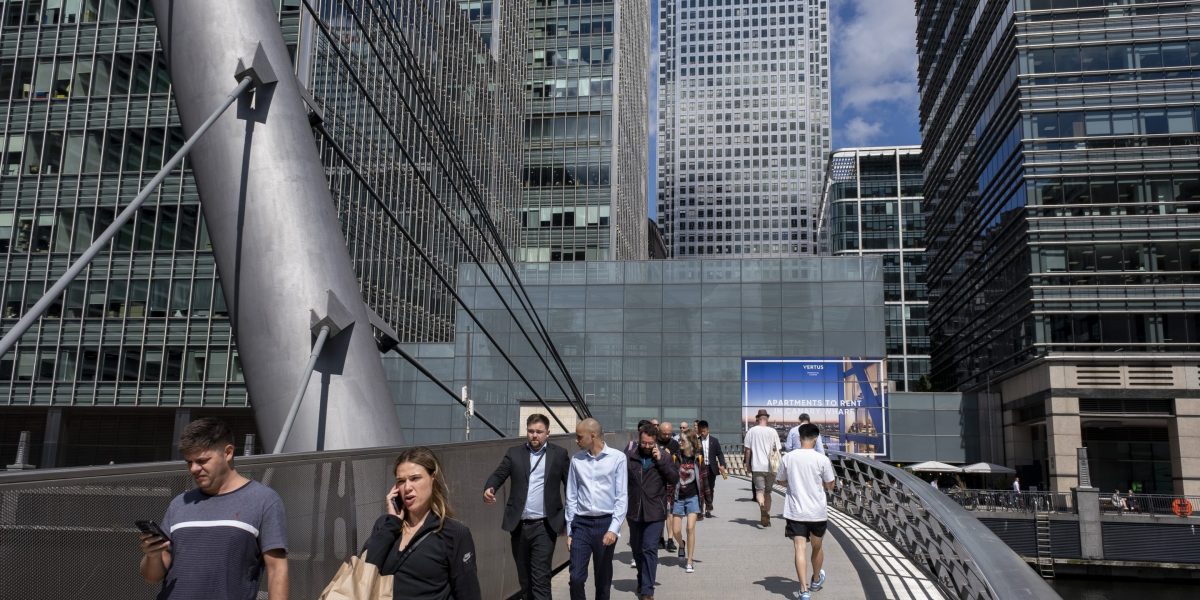Defo not where I am!
Me either. Fortune seems to be going hard on the commercial real estate propaganda
This is the best summary I could come up with:
Global recruitment agency Hays Plc found that about 43% of employees worked entirely from the office between August and September, compared to 36% during the same period in 2022.
“It’s clear from our research that there’s still no one-size-fits-all solution when it comes to how staff want to work and how flexible employers are willing to be,” Gaelle Blake, head of permanent appointments at Hays UK and Ireland, said in a statement.
The leaning to a shorter workweek, which the U.K. piloted last year with great success in increasing productivity and lowering turnover, is serious: Employees would even consider quitting jobs to pursue it.
In fact, employees were more likely to follow through on an all-hybrid work model, with 99% of workers complying with it, compared to just 77% when specific in-office days were prescribed.
“If employers are asking staff back to the office more, they need to question if they are doing it for the right reasons such as facilitating more team building opportunities and offering an enticing work environment.
The decision for how many days could further depend on factors such as commute time, organizational culture, and more, AWA’s consulting director Brad Taylor wrote in a blog post last month.
The original article contains 764 words, the summary contains 202 words. Saved 74%. I’m a bot and I’m open source!
It does seem like the climate is shifting further towards hybrid rather than fully remote. To be honest, I do miss aspects of office working. It’s definitely not for everyone and it restricts what opportunities are available to me but it does feel like a desire of mine now




